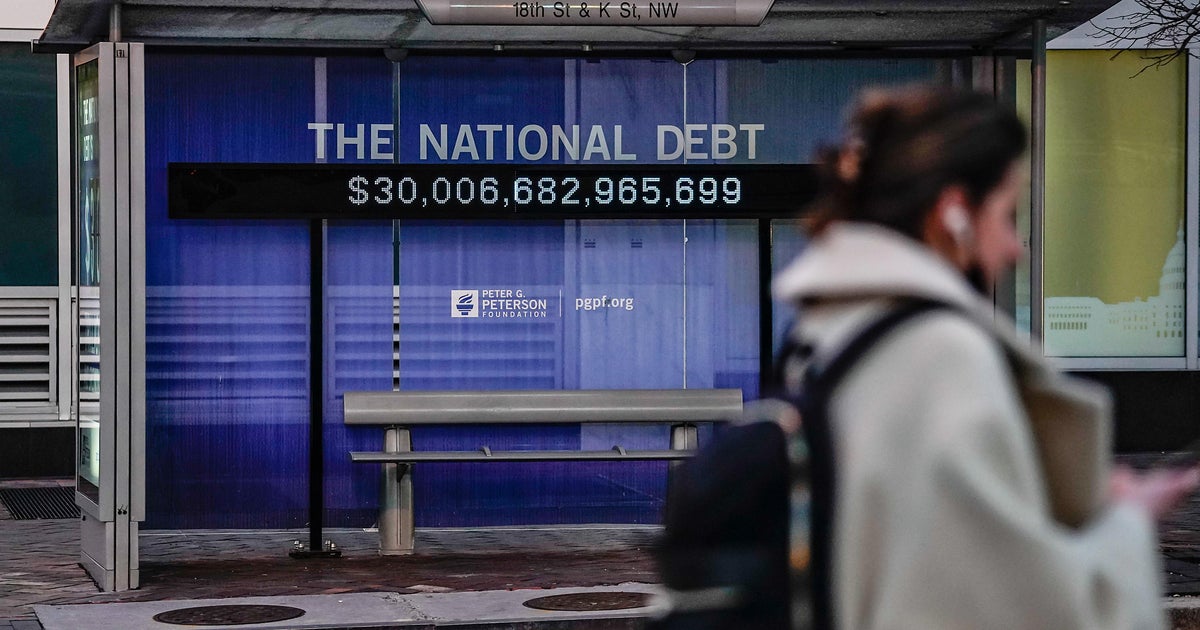
U.S. interest payments on its debt are set to exceed defense spending. Should we be worried?
CBSN
Americans are familiar with the impact of higher interest rates, which are making it more expensive to carry credit card debt or buy homes and cars. But the federal government is also getting walloped: Spending on interest on U.S. debt is now the fastest growing part of the budget, and even projected to overtake national spending on defense this year.
Federal spending on interest payments is forecast to hit $870 billion this year — exceeding the $822 billion that the nation will spend on defense in 2024, according to a recent analysis by the Congressional Budget Office. This year's outlay for interest payments represents a 32% increase from last year's $659 billion in interest expense.
To be sure, higher interest rates aren't the only factor raising the cost of servicing the country's debt. Over the last decade, the U.S. has almost doubled its outstanding debt, which surged to $33 trillion last year from $17 trillion in 2014, according to Treasury data.
